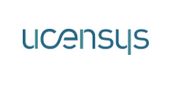How to Perform a Cybersecurity Audit for Your Business

Nearly every modern business uses information technology to run their company, so a robust cybersecurity plan and comprehensive network solutions are critical for protecting your data. Companies handling sensitive information should always have audits performed by a third-party organization, but self-auditing is also a valuable tool for assessing your current security measures. Follow the steps below to get a sense of how well your company is protected.
How to Assess Your Business’s IT Security Strength
1. Review Your Cybersecurity Measures
Before you begin an audit, review your current defenses and plans in the event of a cyberattack. Are all of your company protocols, policies, and procedures up to date? Are they complete and easy for employees to understand? Make sure all roles are clearly defined and make note of what areas need improvement.
2. Determine the Scope of Your Audit
When performing an audit, you’ll need to figure out exactly what you’ll be looking at. For example, you may want to test the overall state or strength of your network security or assess potential areas of vulnerability.
Establish the full scope of the audit, then draw a security perimeter around all valuable assets that could be taken, manipulated, or destroyed by hackers or other threats. Everything within these boundaries will be checked in the audit.
3. Identify Threats & Assess Risks
With your perimeter  defined, consider the threats that your data and assets may face. Malware and hackers are some of the most common concerns, but phishing attempts and denial-of-service attacks are other malicious threats to look out for. Natural disasters and human error, such as accidental password leaks, are potential disasters that many businesses aren’t prepared for.
defined, consider the threats that your data and assets may face. Malware and hackers are some of the most common concerns, but phishing attempts and denial-of-service attacks are other malicious threats to look out for. Natural disasters and human error, such as accidental password leaks, are potential disasters that many businesses aren’t prepared for.
Finally, consider new risks that have become relevant since your last audit. New hardware, software, data storage services, and employees can create additional vulnerabilities.
4. Create & Implement Security Plans
Once your assets, threats, and risks have been defined, look back at your cybersecurity plans and see if they’re sufficient. There may be protocols that can be improved or entirely new processes that will need to be implemented. Common security measures include data backups, software updates, strong firewalls and anti-virus programs, spam filters, and employee training on spotting and avoiding cyberattacks.
5. Prepare for a Professional Audit
Self-auditing is a useful tool for ensuring your cybersecurity policies are working as they should. However, you’ll still need a professional to perform external audits every now and then. External auditors have the benefit of complex cybersecurity software and industry expertise to find even the smallest security flaws and vulnerabilities. Internal audits are a quick and inexpensive way of checking in on your security between these services.
If your company’s cybersecurity audit has revealed some possible security flaws, Ucensys Research has the network solutions you need to better protect your data. Located in Atlanta and serving clients throughout the nation, this information technology research and development organization provides a wide variety of services customized to suit your unique needs. From secure cloud storage and cognitive computing services to application and website development, they’re committed to building efficient, cost-effective network solutions for your business. Learn more about their services online. To request an assessment of your cybersecurity setup, call (703) 565-2857.
About the Business
Have a question? Ask the experts!
Send your question

